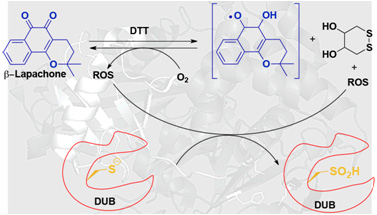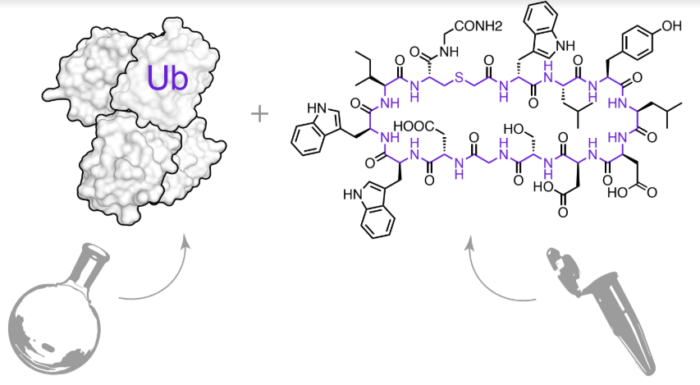My lab is interested in developing novel strategies to modulate various enzymes using different type of chemical entities. For example, the group is interested in studying and inhibiting deubiquitinases (DUBs). These enzymes have been implicated in various diseases, including neurological disorders, infectious diseases and cancer. Hence, it is not surprising that they are emerging as potential therapeutic targets and have encouraged the development of assays for the discovery of inhibitors for pharmaceutical needs and for studying the roles of DUBs in various biological functions. However, none of these strategies have identified inhibitors against any DUB that has reached clinical stages. This is due to several challenges that are encountered in the discovery process, such as the absence of a highly sensitive and practically available high-throughput screening (HTS) assay to identify lead compounds against a DUB of interest. One of the reasons for the lack of such an assay is related to synthetic difficulties in preparing an efficient assay that takes into consideration the relatively complex structure of the natural substrate. We designed and generate an HTS assay based on ubiquitinated peptides to target various DUBs. For example, we reported that small molecules that are capable of generating ROS efficiently inhibit DUBs by selective and non-reversible oxidation of the catalytic Cys residue.

In collaboration with the Suga lab, we have also developed a new approach to target the ubiquitin chains with cyclic peptides. De novo cyclic peptides were found to bind tightly and specifically to Lys48-linked Ub chains. These cyclic peptides protected these chains from DUBs and prevented proteasomal degradation of Ub-tagged proteins. The cyclic peptides could enter cells, inhibit growth and induce programmed cell death, opening new opportunities for therapeutic intervention.

